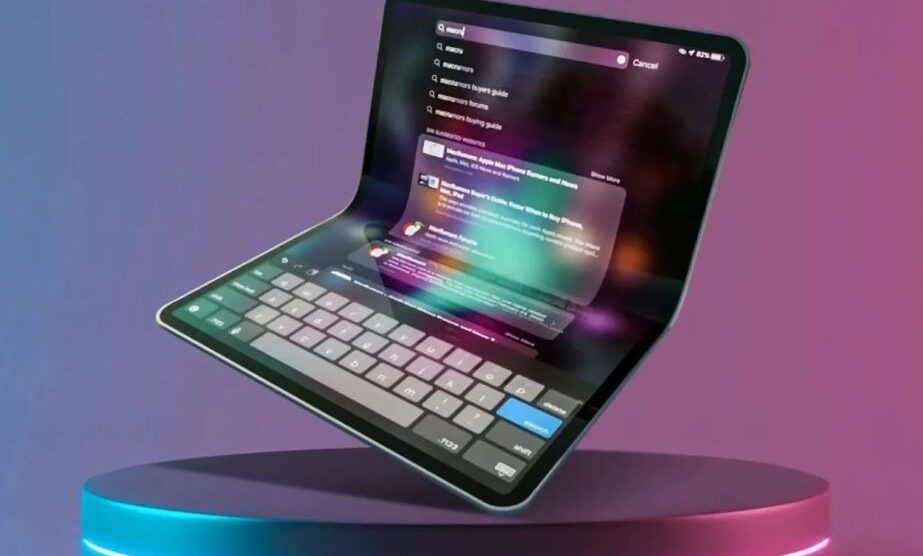Apple works on a giant foldable iPad, which is expected to be released in 2028. This highly anticipated device is projected to reshape the technology market with its advanced features, targeting users seeking flexibility, innovation, and immersive experiences. Reports surrounding the foldable iPad suggest Apple is aiming to combine the compact portability of tablets with the larger-screen convenience of laptops. Although the official launch is still years away, the details emerging from industry insiders, supply chain leaks, and technology analysts are painting an exciting picture of the next step in Apple’s product line.

The news of Apple’s foldable iPad came at a time when foldable technology has been steadily gaining traction among other tech giants, particularly Samsung and Huawei, who have already introduced foldable smartphones and tablets. Apple’s decision to venture into this market, albeit at a slower pace, is being seen as a calculated move to ensure its offering sets itself apart from competitors. Unlike existing foldable devices, the rumored Apple foldable iPad is expected to deliver unparalleled design finesse, hardware integration, and software optimization—all aspects the company is widely renowned for. Analysts believe this new foldable iPad will align closely with Apple’s current ecosystem, enhancing the overall user experience for those invested in products like the MacBook, iPhone, and iPad.
Apple has a history of timing its product launches carefully, often entering a market long after competitors, but revolutionizing it with superior execution. This foldable iPad’s projected launch date of 2028 is no exception. By waiting, Apple is allowing itself sufficient time to perfect the technology, improve hardware durability, and resolve common issues seen in earlier foldable devices, such as screen creasing and hinge durability. This approach also positions the product for mass adoption by ensuring it meets Apple’s high standards of functionality, user-friendliness, and reliability.
Reports from supply chain insiders indicate that Apple is already in the process of testing several prototypes for its foldable iPad. These prototypes reportedly feature an OLED or micro-LED display—a step up from traditional LCD panels, as OLED technology allows for greater flexibility, thinner designs, and improved image quality. This innovation will likely be paired with reinforced hinge technology that ensures smooth folding and unfolding motions without compromising the structural integrity of the device. Apple is said to be working closely with display manufacturers like LG and Samsung, both of which are leaders in flexible screen technology, to achieve this feat.
The size of the foldable iPad is a topic of much speculation, but many insiders suggest that the screen will measure somewhere between 14 to 20 inches when fully unfolded. If this estimate holds true, the device would bridge the gap between traditional iPads and MacBooks, offering users an all-in-one solution for both portability and productivity. When folded, the device could resemble a compact tablet or a slightly thicker version of an iPad, making it easier to carry while still delivering the benefits of a large screen when fully expanded. Apple’s focus on thinness and lightweight design is expected to ensure that even with a foldable form factor, the device remains practical for everyday use.
A significant selling point for the foldable iPad will be its software capabilities. Apple’s iPadOS is already well-regarded for its versatility, multitasking abilities, and seamless integration with other Apple devices. The foldable iPad could introduce enhancements to iPadOS, such as adaptive UI features that adjust based on the device’s folded or unfolded state. For example, when folded, the software might display a compact version of the UI optimized for touch interactions, whereas in the unfolded state, it could transition into a more laptop-like interface, supporting advanced multitasking, split-screen applications, and external peripherals like keyboards and trackpads.
Furthermore, Apple’s investment in its M-series processors, which are already delivering exceptional performance in iPads and MacBooks, is expected to power the foldable iPad. Devices featuring the M1, M2, and upcoming M3 chips have already demonstrated unmatched performance in terms of processing speed, energy efficiency, and AI-driven capabilities. The foldable iPad is likely to benefit from an upgraded version of these processors, ensuring it can handle demanding tasks such as video editing, gaming, and software development with ease. This will place the foldable iPad in direct competition with laptops and desktop PCs, appealing to creative professionals, business users, and tech enthusiasts alike.
As with all Apple devices, design will play a pivotal role in the success of the foldable iPad. Apple’s design philosophy has always prioritized minimalism, elegance, and attention to detail. Leaks suggest that the foldable iPad will boast a bezel-less display, maximizing screen real estate while keeping the overall size manageable. The device may also feature Face ID for biometric security, as seen in recent iPad Pro models, along with improvements in Apple Pencil compatibility for artists, designers, and note-takers.
Battery technology will be another critical factor for the foldable iPad. Given the demands of a larger, foldable display, Apple is expected to employ advanced battery solutions that provide extended usage times without adding bulk. Some reports indicate Apple is researching dual-battery configurations, where separate battery units power different sections of the device. This approach would not only improve battery efficiency but also contribute to the overall balance of the device, ensuring it remains lightweight and ergonomic.
In terms of pricing, analysts predict that the foldable iPad will come with a premium price tag, consistent with Apple’s positioning as a high-end brand. Early estimates suggest the price could start around $2,000 or more, depending on the final specifications and storage options. While this price point may seem steep, Apple has successfully built a loyal customer base willing to pay a premium for cutting-edge technology, unmatched build quality, and long-term software support. For many users, the foldable iPad’s potential to replace multiple devices—such as laptops, tablets, and portable displays—may justify the investment.
The potential release of the foldable iPad in 2028 also coincides with growing trends in mobile computing and hybrid work environments. The COVID-19 pandemic accelerated the shift toward remote work, digital collaboration, and portable productivity tools, creating demand for devices that can adapt to multiple use cases. Apple’s foldable iPad is poised to address this demand by offering a versatile device that seamlessly transitions between work, entertainment, and creative tasks.
While the excitement around the foldable iPad continues to grow, it’s important to note that Apple is notorious for keeping its product development plans under tight wraps. Much of the information available so far comes from leaks, patent filings, and supply chain rumors, making it difficult to confirm specific details. However, Apple’s track record of innovation, combined with its strategic approach to entering new markets, suggests the foldable iPad could be a game-changing product when it finally hits the market.
The launch of a foldable iPad would also mark a significant milestone for foldable technology as a whole. Despite the progress made by other companies, foldable devices still face challenges such as durability concerns, high production costs, and limited software optimization. Apple’s involvement in this space could push the entire industry forward, driving innovation and encouraging competitors to improve their offerings. As seen with previous product launches like the iPhone and iPad, Apple has the ability to redefine user expectations and set new standards for the industry.
Ultimately, the foldable iPad represents Apple’s vision for the future of mobile computing—a future where devices are no longer constrained by rigid form factors. By combining portability, flexibility, and performance, Apple aims to create a device that adapts to the needs of modern users, whether they’re working on the go, enjoying multimedia content, or expressing their creativity. While the wait for 2028 may feel long, the possibilities offered by the foldable iPad make it one of the most anticipated products in Apple’s history.
The implications of a foldable iPad extend beyond just individual users. Businesses, educational institutions, and creative industries could all benefit from a device that offers the best of both worlds: the portability of a tablet and the functionality of a laptop. For example, architects and engineers could use the foldable iPad to view large-scale blueprints, while educators might leverage its versatility for interactive lessons and presentations. Similarly, artists and designers could take advantage of the expansive screen for sketching, photo editing, and digital artwork, all with the precision offered by the Apple Pencil.
As 2028 approaches, anticipation for the foldable iPad will only continue to grow. Apple’s ability to deliver a product that exceeds expectations will be closely watched, particularly given the increasing competition in the foldable device market. Whether the foldable iPad becomes a mainstream success or a niche product remains to be seen, but one thing is certain: Apple’s entry into the foldable technology space will leave a lasting impact on the industry. The combination of innovation, design excellence, and user-centric features positions the foldable iPad as a revolutionary step forward, reaffirming Apple’s role as a leader in the world of technology.










Add Comment